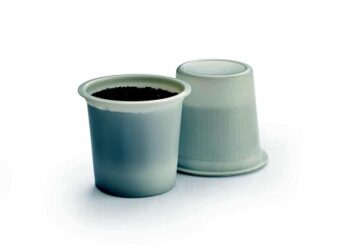Recent research shows that new vegan-based biomaterials could be used instead of chemical products and pesticides to help farmers manage their crops in a more eco-friendly and sustainable way.
Scientists from India and Liverpool John Moores University have published a study in Frontiers in Bioengineering and Biotechnology which shows the use of rhamnolipid biosurfactant in combination with fungal chitosan nanoparticles used to control bacterial and fungal plant pathogens associated with citrus, wheat, and sugarcane.
Dr Pattanathu Rahman, Senior Lecturer at LJMU’s School of Pharmacy and Biomolecular Sciences, Ms Bhoomika Karamchandani, PhD student, and Dr Surekha Satpute, Assistant Professor, Savitribai Phule Pune University are the leading researchers of this work from India.
“Population growth and an increase in need for food supplies have led to the enormous use of agrochemicals by farmers. Overall crop productivity is also affected by environmental changes including extreme weather, global warming and disease outbreaks,” says Dr Rahman. “To manage these demands for enhanced productivity and to overcome the complex environmental challenges across the agricultural sector, the focus needs to shift to a sustainable and eco-friendly approach. That’s where our research into innovative alternatives to chemical agents or animal-derived ingredients should really make a difference. Our study should better support the development of eco-friendly biodegradable agricultural formulations in the future.”
The researchers explored the use of nontoxic, biodegradable and eco-friendly rhamnolipid biosurfactants with antimicrobial potential. They specifically looked at these antimicrobial properties in fungal chitosan and fungal chitosan-derived nanoparticles. Chitosan is a renewable biopolymer utilised in personal care, cosmetics and home care.Chitosan based nano-carriers are used as anti-metastatic agents in cancer therapy.
The scientists found that fungal-based vegan chitosan could be extracted from a fungi Cunninghamella echinulate and the nano-sized ingredient could be used to control plant pathogens as an alternative to chemical agents. This technology enhances antimicrobial properties through greater electrostatic interactions and more effective disruption of the pathogen’s cell membrane.
This nano-bio ingredient can be used as a biocontrol agent for plant pathogens such as Xanthomonas, which causes postharvest diseases in several fruits and vegetables, citrus bacterial canker disease, banana Xanthomonas wilt and black rot in cabbage.
According to Dr Rahman, LJMU researchers from the Faculty of Science would continue to explore nanomaterials as part of their work for the Diagnostics and Therapeutics group of the Institute for Health Research.
This nanomaterial-related work aligns with the core areas of research highlighted in the Faculty of Science Research Strategy. At LJMU, there are four pilot-scale bioreactors and analytical capabilities for eco-friendly biosurfactant production.
The study Synergistic Activity of Rhamnolipid Biosurfactant and Chitosan Nanoparticles Derived from Fungal Chitosan Against Phytopathogens is authored by Bhoomika M Karamchandani , Priya A Maurya , Sunil G Dalvi , Samadhan R. Waghmode , Deepansh Sharma, Pattanathu K S M Rahman , Vandana Ghormade and Surekha K Satpute (2022).

















